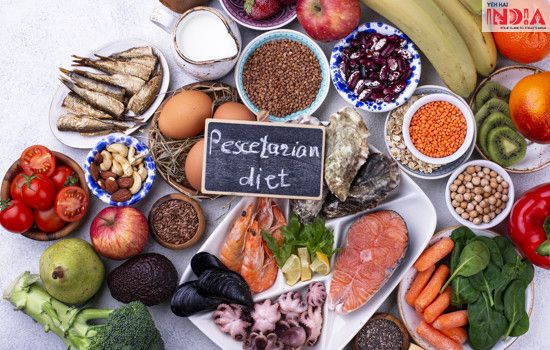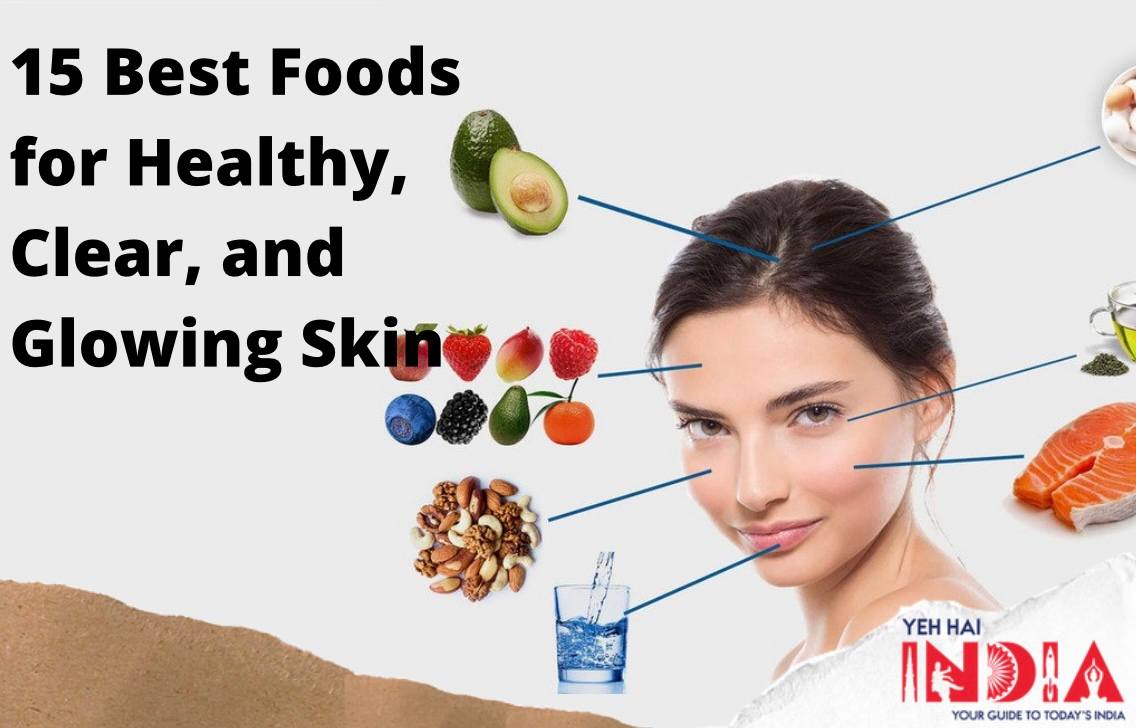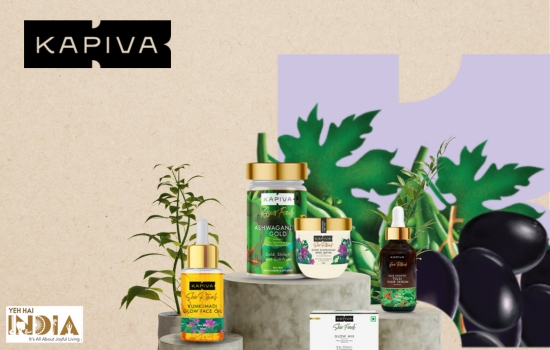The Pescatarian diet emphasizes a blend of plant-based foods and seafood, striking a balance between health and sustainability. With a focus on nutrient-rich options, it offers a versatile and flavorful way to support both your well-being and the planet.
Multiple cuisines and the complexities of fad and healthy diets can be perplexing for anyone. Read on to find out what this entails and how you may benefit from it.
What is a Pescatarian diet?
A pescatarian is someone who consumes fish and seafood along with a vegetarian diet. They do not consume any other forms of non-vegetarian items like chicken, eggs, mutton, lamb, etc.
- A pescatarian diet is a vegetarian-adjacent diet.
- Some might consume milk, but recently, many pescatarians have also eliminated dairy.
- Pescatarian diets are also followed by those who are transitioning from non-vegetarianism to vegetarianism or veganism.
- This eating habit is quite popular in coastal regions and has been a part of many traditional cuisines.
This is not a fad diet; it is more like a lifestyle.
According to research, there are various advantages to including fish in a daily diet, which has led to the diet’s growing popularity.
Before going further, let’s take a quick look at the hoe pescatarian diet is different from other diets.
Pescatarian, Vegetarian and Non-vegetarian Diets
| Diet | Inclusions | Exclusions |
| Vegetarian | Plants, dairy, eggs | Meat, poultry, fish |
| Pescatarian | Plants, dairy, eggs, fish, seafood | Meat and poultry |
| Non-vegetarian | All animal products | None |
Advantages of Disadvantages of Different Diets
| Diet | Benefits | Disadvantages |
| Vegetarian | High in saturated fat & cholesterol. Low in fibre & antioxidants. Increased risk of lifestyle disorders due to a high intake of fat. | Difficulty in getting enough protein & iron, if not eating a balanced diet. Seasonal challenges. |
| Pescatarian | Similar benefits to a vegetarian diet. Additional omega-3 fatty acids from fish. | Difficult to get enough Vit B12, if not consuming dairy products. |
| Non-vegetarian | Higher in protein & iron. | High in saturated fat & cholesterol. Low in fibre & antioxidants. Increased risk of lifestyle disorders due to high intake of fat. |
Recommended Story – Best Indian Diet Plan for a Healthy Life
Health Benefits of a Pescatarian Diet
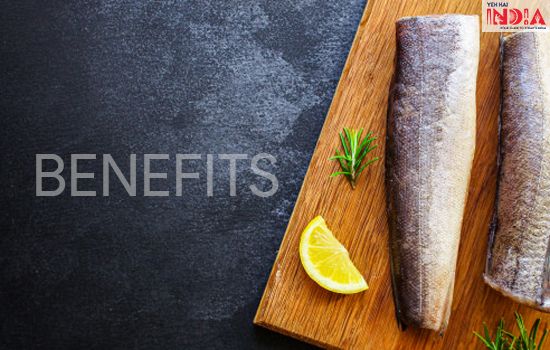
1. Disease Prevention
The diet is rich in nutrients like minerals, vitamins, and antioxidants that lead to reduced risk of chronic diseases like diabetes and certain types of cancer, by reducing inflammation in the body and supporting overall health.
Additionally, incorporating more fish into your diet can provide essential nutrients like omega-3 fatty acids, which are important for brain health.
2. Nutritious
Seafood contains essential nutrients such as vitamin A, beta-carotene, B-complex vitamins, omega-3 fatty acids, calcium, and phosphorus that are typically lacking in other modern fad diets.
- It is also low in salt and cholesterol.
- Shrimps are abundant in iron, making them ideal for menstruating women, who are often iron deficient.
- Fish has an abundant protein content that is almost identical to that of other lean meats. For instance, just 100 grams of Salmon has about 22 g of protein.
- Such high protein options further eliminate the need to take protein supplements.
As a result, a pescatarian diet is suitable for people of all ages. People following this diet wholly are less likely to need any additional vitamin or mineral supplements to stay healthy.
3. Improved heart health
Healthy fats have been linked to reducing the risk of heart disease and improving overall cardiovascular health.
- A pescatarian diet, which includes fish and seafood, is typically low in saturated fats and high in omega-3 fatty acids.
- Research suggests that this diet may help reduce the risk of heart disease and stroke due to the high omega-3 fatty acid content found in fish.
4. Flexibility
A pescatarian diet is less restrictive as compared to other types of modern diets like vegan, keto, Paleo, and many more.
- Allowed to have a wide variety of foods from different food groups, including grains, nuts, dairy, legumes, etc.
- With no dearth of options, this diet becomes easier to maintain and stick to in the long run.
5. Low on chemicals or antibiotics
With a pescatarian diet, you can avoid all the harmful antibiotics and other chemicals in factory-farm produce, as meat industries, especially factory farms, have become infamous for antibiotic contamination.
- Animals are usually kept in extremely poor and unhygienic conditions, due to which, large quantities of antibiotics are used to keep them healthy.
- Resulting in higher profits for the industry but a bad quality product for the consumer.
6. Weight management
Pescatarian diets are often associated with weight loss or weight maintenance due to their emphasis on plant-based foods and lean proteins from fish and legumes.
- The pescatarian diet tends to be lower in calories and saturated fats compared to diets that have meat, chicken, lamb, etc.
- Incorporating shrimp into a pescatarian diet can also support healthy weight management due to its low calories and high protein content.
More than any other health benefit, the pescatarian diet has grown in popularity in recent years due to its potential weight loss benefits. But,
Does Weight loss from a Pescatarian Diet make sense?
Yes, it does!
The pescatarian diet, which is high in protein coming from seafood, fish, and legumes, promotes weight loss by increasing satiety as proteins are digested slowly as compared to other high-carb foods. This further minimises cravings and increases metabolism.
Additionally, omega-3 fatty acids found in fish have been linked to improved insulin sensitivity and decreased inflammation, which supports weight loss efforts even more.
Ethical Benefits of the Pescatarian Diet
A pescatarian lifestyle is a great bonus for people who are concerned about the earth.
A pescatarian lifestyle favours the environment. While one pound of beef requires 2500 gallons of water to produce, vegetarian sources of protein require much less water. People living in coastal areas or near rivers often have access to fresh catches at local farmers’ markets, which have a very low environmental footprint.
1. Opposing factory farms
The practices that go on in factory farms are not hidden from the world anymore., thanks to documentaries that revealed the horrific truth. Animals are treated in the most inhumane way possible.
The meat produced is not of good quality due to the poor health of the animals. They are generally fed excessive amounts of antibiotics and kept in extremely deplorable conditions.
2. Labour condition
Along with animals, even workers are given poor working conditions that involve unhygienic surroundings with a high risk of infectious diseases. Still, they are underpaid.
3. Humanitarian causes
Some people believe that the problem of world hunger can be solved if people stop farming animals and instead use grains to feed the poor.
Almost 70% of the grains that are produced worldwide are used to feed farm animals instead of humans.
Recommended Story – Keto diet becoming famous in India- But is it safe?
What to eat on a Pescatarian Diet?
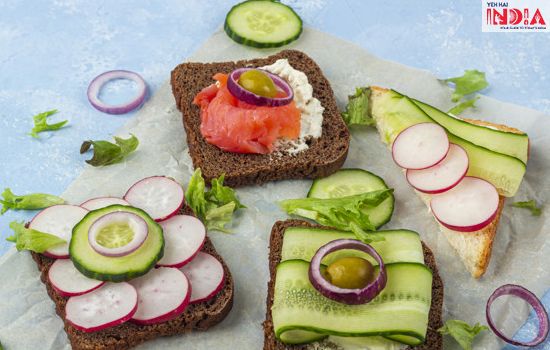
Pescatarian diets can be a great way to get the benefits of a vegetarian diet while still getting some of the nutrients that are found in fish, such as omega-3 fatty acids.
However, it is important to note not all fish are equally good.
- Some fish, such as salmon and tuna, are high in mercury, so it is important to choose fish that are low in mercury.
- Consuming fish that are low in mercury, such as sardines and mackerel, can be a safer option for individuals following a pescatarian diet.
- Variety of fruits and vegetables.
- Whole grains: Lots of healthy whole grains like brown rice, whole wheat, oats, quinoa, and millet
- Legumes: Legumes like lentils, tofu, and beans
- Nuts: peanuts, cashews, almonds, and nut butters
- Seeds: Different types of seeds like chia seeds, flaxseed, hemp seeds, and sesame seeds
- Diary: You may also include dairy products like milk, yoghurt, and cheese or non-dairy alternatives like oat milk, rice milk, etc.
- Fish and seafood, that are low in mercury.
Options for Sourcing Food
There are several options for sourcing food in India for a pescatarian. It is important to consume healthy and fresh fruits and vegetables in abundant quantities to get all the benefits of this diet. One can source these vegetables from their local markets.
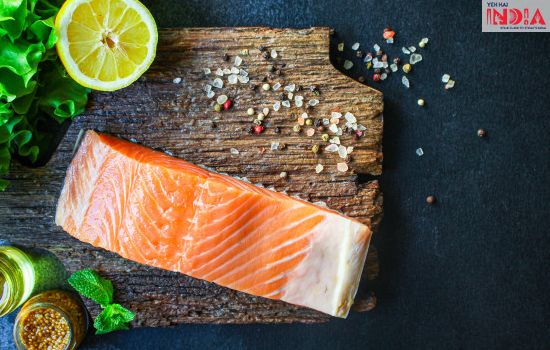
However, to get organic produce, you can buy from brands registered with the USDA to ensure the quality of the products. There are so many organic brands in India right now from which you can source your ingredients, for example, Organic Tattwa, 24 Mantra, etc.
They deal with whole grains, nuts and butter, and some of the brands, like Farm to Kitchen, Organic Garden, and Pride of Cows, deal with fresh produce like bakery items, fruits, vegetables, and dairy.
Pollutant contamination of freshwater and saltwater fish is a growing concern nowadays. While sourcing fish, you need to make sure that the produce is organic and free from such contamination, which can cause drastic health effects. To solve this, sourcing it from local sellers, who usually catch it fresh from the ponds, is a good option.
Many trusted fish companies deliver products like fish and seafood, providing a convenient and reliable way to get fresh seafood delivered to your door. A few of them are Licious, Captain Fresh, Shore Foods, and FreshToHome.
You can choose your source depending on your location.
A pescatarian diet can do wonders for your health, don’t forget to create a balance!
Recommended Story – Sodium in our daily Diet- Effects on our body of Low and High Sodium intake


